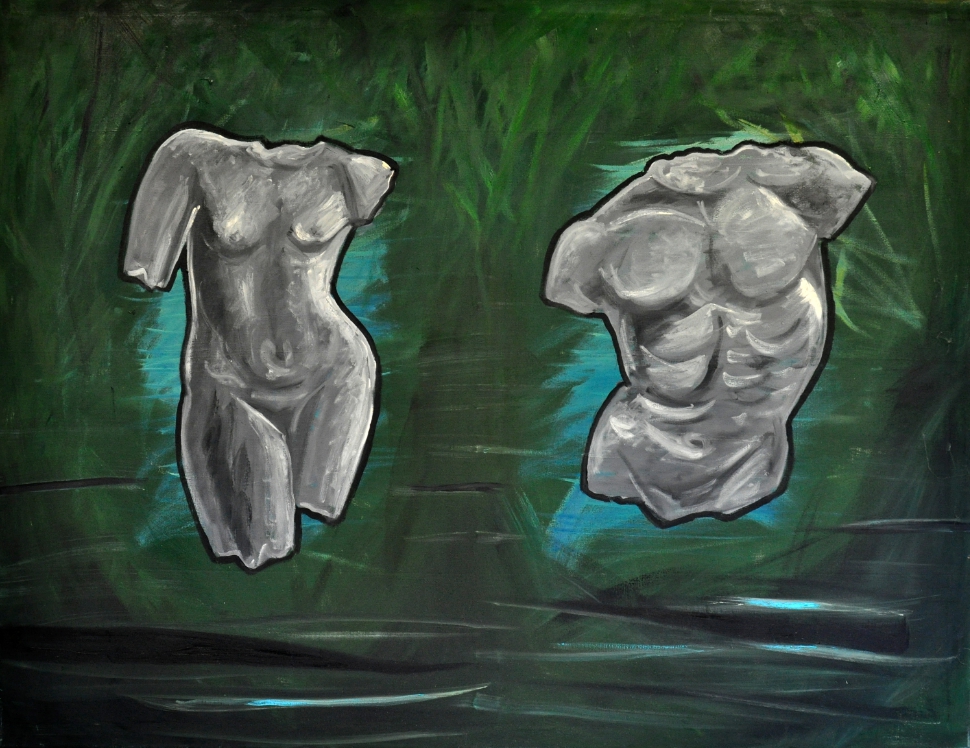Feminism, Speciesism, Anthropocentrism
Feminism, Speciesism, Anthropocentrism
Random examples of female rhetorics of speciesism:
- objectification of beings oppressed, animalesque figures made with wool / felt; https://web.archive.org/web/20160323101532/
https://www.stephaniemetz.com/portfolioOverbredAnimals.html - helplessness and helping as an act of public viewing, http://kathyhigh.com/project-embracing-animal.html
- the daily randomness of the gender / nonhuman animal speciesist contexts, women taking/being part, http://huzzahvintage.blogspot.com/2010/10/you-decide.html
- female-identified fans, adherents, students of Hermann Nitsch for example
- female speciesist artists in general, random examples with critical comments:
Is a self-critical view on gender / being a woman / feminism necessary?
What would speak against it? We know that in our daily lives we, as “women”, make decisions that touch on core grounds that turn the private/the personal into the political (https://userpages.umbc.edu/~korenman/wmst/pisp.html). As antispeciesists we know with our vegan praxis just how impactful our personal choices are, and as social beings we also know how hard it can be for us to draw a line between the social expectations that one tries to fit in (in order to find a job, to be liked or accepted, to keep ones social ties or family structures/felt obligations together, and so forth) and our political ideals and ethical, pressing necessities when both might stand in conflict with each other in times of societal change. Our human social environment might be heavily speciesist and we have to get along with it, somehow yet still inspire change, for instance.
Speciesism, as remote as it seems, is to be found at the same point where my-choice-to-decide-otherwise-or-not crosses just any implications of socialization that I feel are ethically unjustifiable. When I rant against sexism I might as well rant against an injustice that targets nonhumans, if I am a vegan anti-speciesist minded person.
Speciesism can be understood to work socially as an ideology, where people who are convinced of their degrading stance, believe in a collectively held fiction that is assumed and agreed upon as “objectivity”, so that no rebuttal can take place on “rational grounds”.
Women do feel at home in this construct inasmuch as men do, on the large scale. Both 50 percent of humanity, male and female, believe so much in human superiority that they are willing to constitute part of a speciesist society by fulfilling their individual part in the fiction.
“Gender” defines itself from interaction within a group or society. Being oppressed as a woman doesn’t automatically mean that you can’t be oppressive towards nonhuman animals. Drawing an analogy between sexism (or genderism) and speciesism does not take account of the different reasons and histories why the victim gets oppressed in the first place – for what ends, and how exactly. If we turn a blind eye on the gender specific functions of speciesism and anthropocentrism we might risk a loophole in our argumentation for our own rights defending nonhumans and for integral Animal Rights themselves.
Speciesism is a unique tragedy. The history of being classified as “animals” by humans, with all that entailed, as beings whose existence had been on earth eons before humans evolved, can’t be compared to any other form of oppression by a strict analogy. Being objectified as solely “animate”, being slaughterable, edible, huntable, vivisectable, being objectifiable and judged as “definable”, in the first place constitutes a specific situation for the affected subject, and hints at a unique technique of injustice taking place here on behalf of the oppressive side that is being applied to this particular victimized group.
Comparisons between different forms of oppression are extensively helpless efforts when oppressor and oppressed are as entangled as in the case of speciesist human oppressive settings.
We could straightforwardly name that natural sciences, religion, philosophy, mass society have to end classifying the beings we call “nonhuman animals”, or we stay stuck in our psychological accompliceship with the very hierarchical and oppressive systems that we criticize so vehemently as what regards our own pains.
I don’t see an alternative.
Image © 2013 @farangisyegane
Reedited 29-10.2018, an excerpt from: Female-identified human individuals and speciesism, species-derogation, -negation -annihilation or the overlooked problem of “women” and anthropocentric-collectivist speciesism
